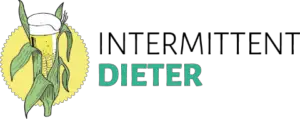If you’re doing intermittent fasting and you’re able for example to not eat for a whole day, you might wonder if you could even fast for longer periods. I did several prolonged fast, meaning at least 5 days for me, without food or drinks that could break the fast. And I discovered when researching the subject that there was lots of info on how-to-do intermittent fasting and far less about how to do a prolonged fast.
If you want to do a prolonged fast you need to be mentally prepared and you should also have some experience with fasting (16 to 24h). Do one meal a day a week prior to the fast, and mostly eat proteins, good fats, a few good carbs, and drink a lot of water. This way you will be ready.
Let’s dive into the magical world of prolonged fast, why you should try it, when you shouldn’t, how to prepare your body and mind and how to get through the fast.
But First, the Disclaimer
A prolonged fast is no walk in the park.
Even though I tend to minify the risks of long fasts, because I read a lot about it and experimented with it, it’s also because I’m healthy and not too old.
If you suffer any type of condition, you take daily medication, you should definitely read on the subject, inform yourself, and talk to your doctor about it before trying anything.
I’m not talking about intermittent fasting or 24 hours. Most articles tackling prolonged fast mention 48 to 72 hours fast. I’m going to be talking about longer periods.
Our ancestors were used to fasting and not eating for a few days because it all depended on the food they were able to find. A cold winter where food was scarce could have them fast for several days.
But we’re not our ancestors anymore, we’re used to eating and drinking constantly, we’re pretty much addicted to sugar in one way or another, leading to all types of health problems.
This cannot be ignored when planning to do a longer fast. I’ll tell you how I think you should prepare your body and mind to do it, but this doesn’t mean I’d advise everyone to do it.
About Prolonged Fasting
How Long Is a Prolonged Fast?
A prolonged fast to me, and most people, generally consists of fasting for more than a day. So, 25 hours is already a prolonged fast in my book.
I’ve read many articles mentioning 48 or 72 hours fasts and that’s fine, that could be a great start if you want to experience prolonged fasting.
But that’s not ideal. Because the first 4 days of a prolonged fast will be the most difficult.
It varies for people of course, but generally, the fourth day started as the most difficult for me and ended up being the easiest by lunch. Going longer than 3 or 4 days actually becomes easier.
Hunger will drop after enough time without eating and the last days we’ll be a lot easier.
This doesn’t mean you won’t have moments when you miss eating. But you’ll miss chewing, the taste of food, the reward you’ll get from it, you won’t be hungry.
So, for me the ideal prolonged fast is between 5 to 7 days.
Some people can even do more, I would say that after 7 days you should definitely get some type of medical supervision, even if you’re young and healthy.
Check out this study where someone fasted for 50 days, or this other one on the world record: a staggering therapeutic 382 days fast.
Again, this doesn’t mean you can’t do shorter fasts, it’s just that the first days are way harder than the last ones, if you go through all this trouble, you might as well go all the way.
In any case, if you don’t feel like it, don’t push it. If it’s too hard, just eat. It’s not a contest, it’s your body, you’ll put lots of stress on it, don’t forget that and be ready to give up if things don’t feel right.
Why Would You Do a Prolonged Fast?
Why would you force youreself into something as uncomfortable as depriving your body of food for a few days?
You’ll feel hunger you’ve never felt before, insane cravings, you might get dizzy, tired, nausea, headaches, and I’m not even talking about social life!
Yes. But it’s only going to be for a few days, what’s a week in your life? And there are great benefits for your health and even more for your mind.
I talked in great length about the benefits of fasting in this article, where I describe more than 30 benefits you can get from most types of fasting. You should definitely check it out!
But here are the three main reasons I do prolonged fasts.
Weight Loss

First and foremost, you will lose weight. A man will lose on average 1kg (2 pounds) a day, a woman a bit less (around 700 grams). That’s not an exact science, but a week of fasting will make you lose at least 5 kg.
You’ll regain some back, sure, since most of the weight you’ll lose at first will come from water. You’ll deplete your glycogen stores (it’s your body’s stored energy found in the liver, muscles, etc.), which will account for much water.
Still, fasting for 7 days can leave you with a net fat loss of 3 kg. If you’re in a weight-loss plateau, that could be the kick your body needs get through it.
Willpower Training
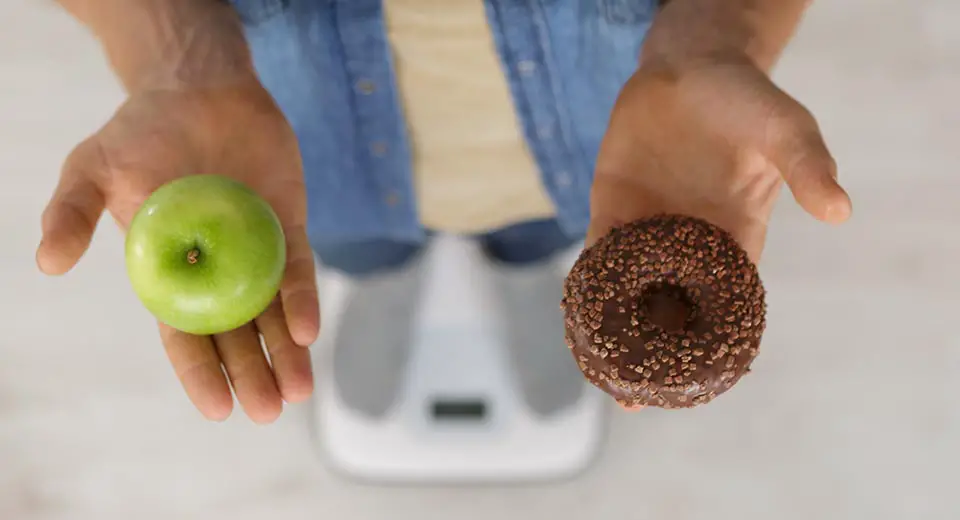
Think of your willpower as a muscle you can actually train. Like any muscle, you can also tire it. It’s finite, requiring lots of willpower for a task, you might not get enough left to resist a cookie craving afterward.
There was a study conducted on willpower, where a group of patients did 4-month money management where they tracked every expense they made. During this study, with limited money, they couldn’t go out much.
What happened is that they actually trained their willpower and it spilled on other aspects of their life, such as exercising more, drinking less coffee and alcohol, cutting down on cigarettes, etc.
If you think willpower is infinite, then you have no reason to train it or try to resist urges or cravings.
In this study on the effects of glucose on willpower, they mostly discovered that people who were told willpower was a limited resource, had more self-control than the other group.
Take it from me, since I started doing intermittent fasting and prolonged fasts a few times a year, I’ve successfully created my own company, started this blog, created a daily exercise routine, etc.
Fasting is not the only factor of course, but I’m pretty sure it helped getting me motivated at first.
Because You Can

That’s kind of a stupid point I’m making here, but let me explain, it has nothing to do with pride, or a higher feeling of self-worth, or saying you’re better than everyone else, etc.
First, being able to not eat for a week and still function is kind of a crazy thing. Most people are terrified of not getting enough to eat at lunch or dinner, imagine telling them to stop eating for several days?
The feeling you’ll get from it is an intense satisfaction and even though you might end your fast thinking you’ll never do that again, ultimately you’ll want to relive this. You’ll be proud of yourself in a good way.
The discipline you put on yourself, leaves you with the feeling you can accomplish anything.
More than that, after doing a prolonged fast, losing a few pounds, and being fine, you’ll free yourself of much weight-related stress.
If you can stop eating for a few days, what’s stopping you to lose weight? To achieve your goals?
For me that was the most freeing thing. Weight-loss is not a problem anymore, you have solutions.
Why You Shouldn’t Do a Prolonged Fast?
Doing intermittent fasting, not eating for a day, changing eating habits to low-carb, paleo, or any other diets, doing all this shouldn’t be a risk for you.
Usually, the topics I tackle are here for your information and most of the time, they don’t pose great risks for your health.
But don’t do a prolonged fast unless you’re healthy.
This means no condition you would take daily medication for, and if you have any doubt, read about it and talk to your doctor about it.
People who definetly shouldn’t try fasting for extended periods are :
- Pregnant or breastfeeding women
- People suffering, or who suffered, from eating disorders
- If you’re already underweight and having troubles gaining weight
If you’re suffering from type 1 or type 2 diabetes, at high risk of cardiovascular disease, suffering from metabolic syndrome, etc. you could get great benefits from fasting, of course, but that doesn’t mean you should fast for several days.
There are other ways to ease or reverse your conditions (intermittent fasting, low-carb) before attempting longer fasts.
Preparing For The Fast
If you decide you want to do a prolonged fast today, I wouldn’t advise you starting tomorrow or a week from now.
I’d suggest you start in a month.
I’m not saying a healthy human body cannot get through a week of fasting with no preparation whatsoever. Because I’m pretty sure it can, or else human beings wouldn’t have survived all this time.
But you’re certainly not doing a prolonged fast because you hate yourself and want to punish you I gather?
In any case it won’t be easy and it shouldn’t, but it doesn’t have to be awful.
That’s why there are many ways to make things easier. After doing several fasts and having friends telling me about their own experiences, here are my best tips to prepare yourself.
You’ll see that preparation is not only important for your body. For me, that’s only 30% of the work.
Most of the preparation will be in your head: preparing your mind, planning, and being confident.
1. Pick A Date And Length
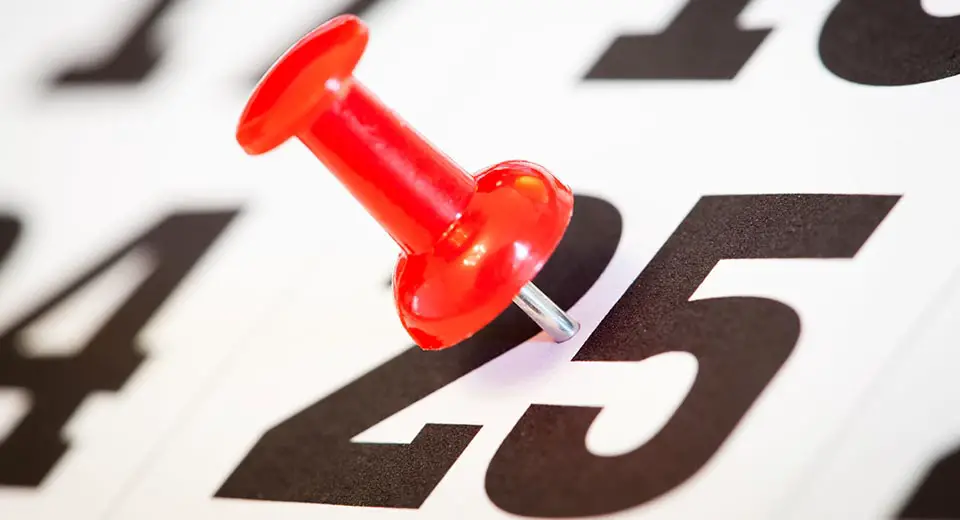
In order to prepare yourself, start by picking a date. When doing that, keep in mind that the second, third, and maybe even fourth day will be the most difficult.
I suggest making sure those days you’ll be out of the house, or in the house but with no food whatsoever. I also suggest you plan to be active on those days (at work or out walking, etc.).
Don’t plan any social activities during the fast, of course, you can always go get a coffee with a friend in the afternoon, but nothing around mealtimes.
While picking the date, you’ll also define how long you want your fast to be. This way you’ll have a clear start, end, and a defined goal.
For now you’re fine and motivated. But trust me, you’ll start thinking this fasting idea is bullcrap once you’re doing it.
Having an end goal is important to avoid thinking “I can stop at any time”, and “this doesn’t make sense”, and “why am I even doing this to myself”, etc.
Trust me, there’s great chance you’ll feel that way, even on the easier days.
The last thing I think is important is that you should pick a date where the end of your fast isn’t near any social activities including alcohol or large meals.
Allow your body to rest, recover and adapt itself to food for at least 2-3 days after the fast.
2. Get Used To Fasting
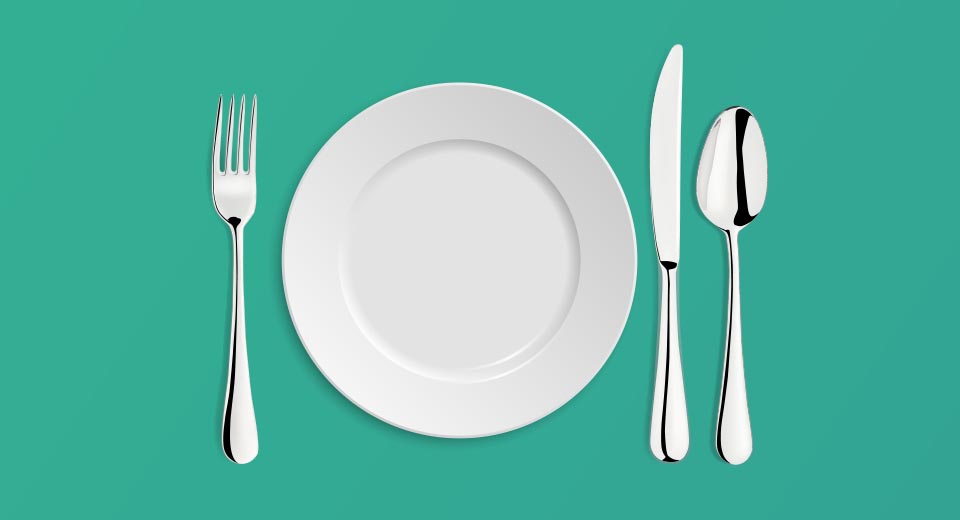
Once you know when you’re going to do the prolonged fast, you should start by getting accustomed to fasting. I hope, if you’re thinking of doing long fasts, that you already are, but we never now.
This means starting with any type of intermittent fasting. First with 12 hours, then 16 to 18 hours and then a full day.
You can even try 36 to 48 hours during the month before the fast to get a taste.
If you never fasted in your life, you really need to start implementing it. If you need a month to get used to 16 hours fasts, and you feel that you’re behind on your “schedule”, don’t sweat it, push the prolonged fast for a few weeks.
This is definitely the most important thing, to already be used to not eating for at least a day.
First, it’s important for your body, to get the habit of fasting. You’ll train your whole machinery to rely on fat stores for energy and not the food you eat, that’s a big step.
But I would argue it’s even more important for the mind, once you’re able to stop eating for a day and to do it 2-3 times, you’ll see it’s really not that hard, and it could help boost your confidence when starting the prolonged fast.
3. Eat One Meal A Day For A Week Prior
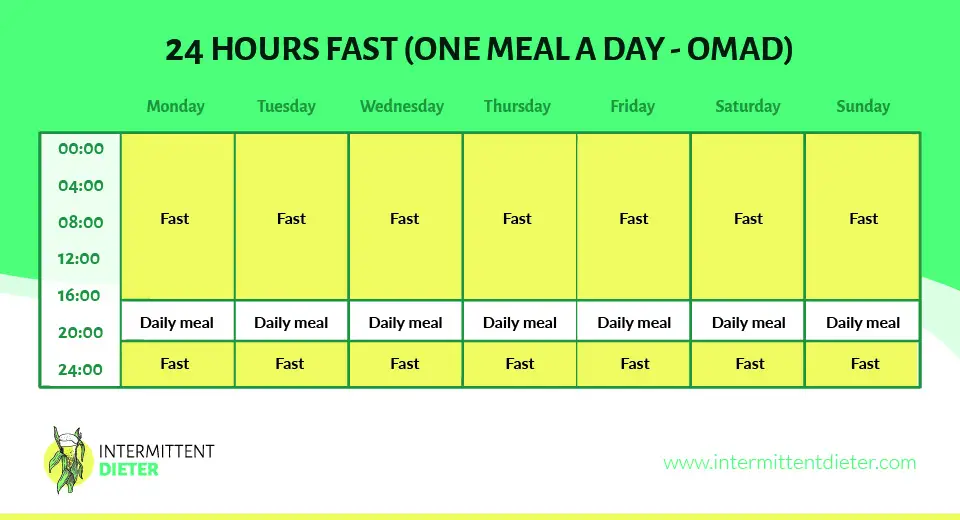
What I usually do before starting a prolonged fast, is getting used to it by doing one meal a day, for a week prior to fasting.
I personnally eat only dinner, but whatever suits you and your schedule best of course.
This way you’re body will already be well adjusted to doing some fat burning and starting off, the first day of the prolonged fast will be a lot easier.
4. Plan Your Fasting Days
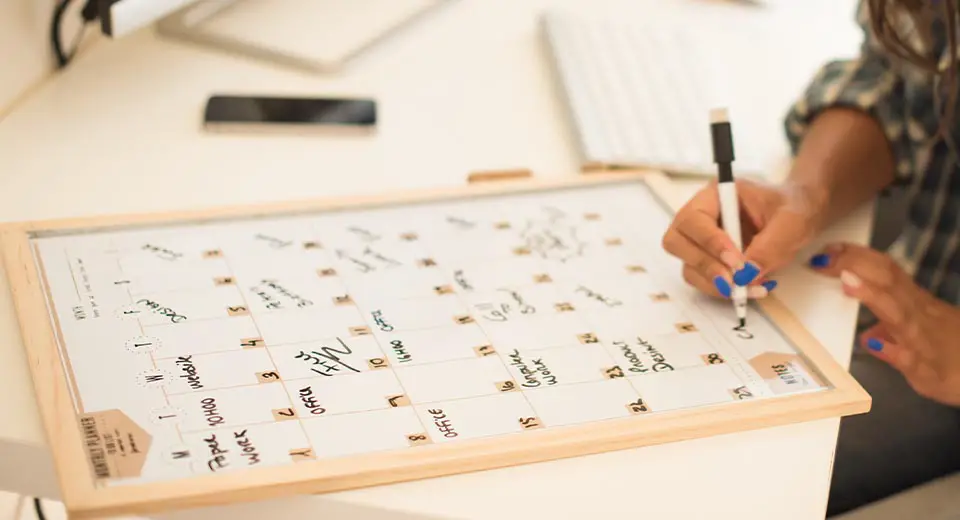
I already mentioned that you should set a clear period for your prolonged fast, I also think you should plan those fasting days.
It’s really important to be active, I wouldn’t recommend you fast during your days off. Unless you think your work environment isn’t fit for fasting, but you will have to be extra-organized.
You already know that watching TV the whole day and walking around at home doing nothing will create huge cravings. Usually, when we’re bored, we tend to eat, it’s no secret.
So stay active. Don’t be afraid you’ll collapse because you think you’ll be lacking energy, exercising is great for you and staying active the best thing you can do for your mind and body.
Here are some activities you could try, aside from working :
- Going to museums
- Sightseeing, most of the time we never even saw the touristic activities near our home
- Walking, lots of walking
- Cleaning, you can even plan a big spring-cleaning
- Reorganizing/redecorating your home
- Implementing a light exercise routine
- Doing sport with friends (squash, tennis, football)
- Taking courses
- Starting a side project you have
- Read books or listen to audiobooks
Use this opportunity to do something you normally wouldn’t. The most important thing is to find things to do during meal times.
You’ll discover that buying, cooking, and eating food takes a lot of time in your life. You’ll not only have to be active during the day but also during your usual meals.
If you start out with a clear plan of your days, or a simple checklist of things you want to accomplish during the fast, you’ll never have any excuse not to do something.
The main idea is to get your mind off food, hunger and fasting.
5. Get Used To Drinking Tons Of Water

I only do strict fasting, allowing only water, coffee and tea (no added cream or sugar of course).
You might be thinking of doing other types of fasting (with vegetables broth or aloe vera complements), that’s fine, do what suits you, but you better get used to drinking tons of water in any case.
Getting up to 4 or 5 liters of water a day (up to 1.3 gallons) is a lot, but I can assure you it’s worth getting used to it. Water will reduce cravings, keeping hydrated is the single most important thing you can do during the fast.
If you’re already used to drinking a lot, you’ll drink a lot during the fast. It may sound stupid, you might think that of course, you’ll drink, you’ll be thirsty. But you won’t necessarily be.
And the problem is that if you stay active, it’s really easy to forget to drink.
Depending on the type of job you’re doing, you won’t be able to drink all the time, so it’s important you start organizing yourself to get enough to drink each day without compromising work quality.
6. Eat The Right Way
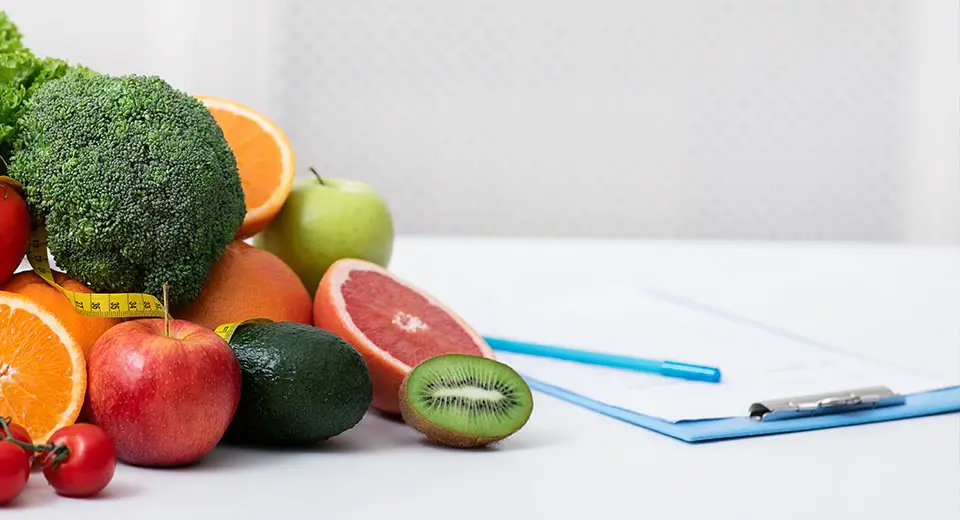
You don’t have to do this for a month, but a week prior to fasting, you should start getting lighter meals and remove sugar and carbs (at least any refined carbs, white bread, pasta).
If you want to know the absolute best foods you can eat before doing a prolonged fast and why check out my full article on the subject.
But it boils down to broth, eggs, fiber-rich foods, good fats (fish, avocado) and low-carb.
You don’t need to overdo it. When I did my first fast I didn’t think about what I ate so much, but again, the goal here is to put all the odds on your side.
7. Empty Your Food Cabinets

Lastly, that’s an obvious one but if you can, meaning you’re living alone, or family members are doing it with you, or they don’t eat at home, try emptying your food cabinets.
Eat what you can and give, or lend the rest to friends during the fast. Or lock the cabinets and give the key to a friend.
It’s not an absolute requisite, because if you’re mentally prepared, having some food in the fridge won’t be enough to make you eat.
During my first 5-day fast, my girlfriend was not fasting and cooked every evening. And it went fine.
But not everyone’s the same and if you can, removing all foods from your home is a sure way not to break during the fast.
Doing The Prolonged Fast
1. What You Can Drink
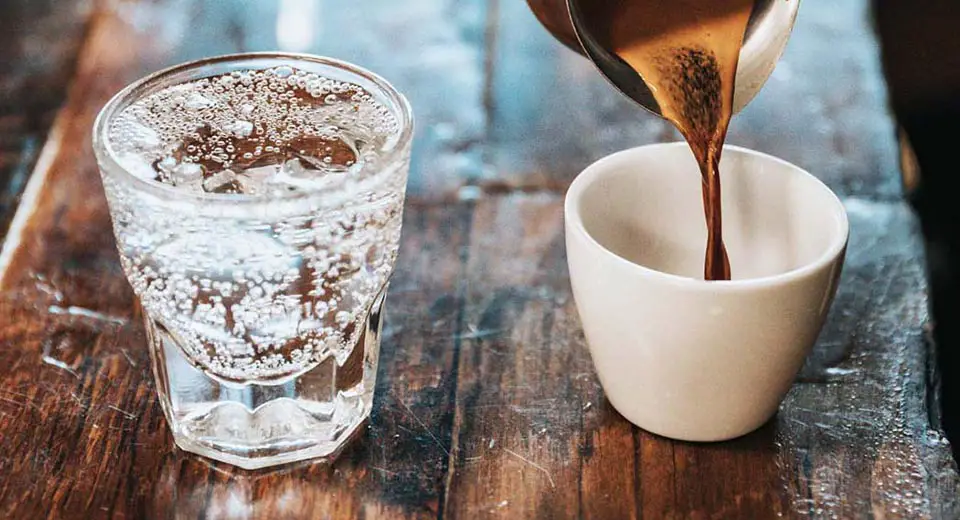
Since I’m talking about strict water fasting, meaning zero calorie, zero fat, zero proteins, zero carbs, zero risk to break a fast, there will be three go-to drinks :
Water or sparkling water
The ultimate go-to drink when fasting, of course, won’t break your fast.
You can even get sparkling water for added tickling, the carbonic gas could help you feel satiated and be a nice change of taste from the usual still water.
Water is not only something you can drink, but you must drink tons of it.
Prior to the fast, it’s important to get used to drinking a lot of water, because when fasting, you should get around 4 to 5 liters a day (1.3 gallons).
Keeping hydrated will help prevent dizziness, fatigue, and it can help get through cravings and hunger.
Coffee (decaf or not)
No added cream or sugar. Preferably no artificial sweeteners, I’m really not a huge fan. Black coffee only.
The greatest benefit of coffee would be that it can greatly reduce hunger.
While coffee itself doesn’t seem to have any effects on ghrelin or leptin levels (respectively the hunger and satiety hormones), it still seems to work as an effective appetite suppressant. With or without caffeine.
Of course, caffeine has many other benefits and works hand in hand with fasting by helping :
- Ketones production, which is your brain’s preferred source of energy, when fasting for a few days, you’ll enter ketosis, producing lots of ketone bodies. Coffee will help to enter ketosis
- Autophagy, the “detox” aspect of fasting on your body. It usually kicks in after around 24 hours of fasting. And it is essentially a type of maintenance in the body (such as recycling damaged and dead cells, amongst other things)
- Improve overall brain functions in the long term, decreasing risks of age-related mental illness.
But when doing a long fast, you shouldn’t be relying too heavily on coffee, while it has many benefits, it still can become addictive and too much coffee isn’t good for you.
Tee with some restrictions
Again, no added cream, sugar or artificial sweeteners, and you should also avoid herbal or fruit tea.
It shouldn’t be a big deal, but sometimes those types of teas come with chunks of fruits, which could still contain some fructose and could potentially break a fast.
When people talk about fasting and weight-loss, green tea often comes up as the perfect companion, since it’s known to have powerful antiobesity properties.
But what if you don’t like green tea? Other teas are fine too, and work great with fasting. For example:
- White tea shares some of the green tea’s compounds and has been found to boost metabolism
- Black tea, which, through the production of short fatty-acids in the intestines, could also help improve calorie expenditure and fat burning.
2. How To Spice Up Your Drinks

After a few days, you might grow tired of even your favorite tea. You’ll wonder if there are ways to spice up those drinks in order to vary a little?
Here’s a summary, if you want to take an in-depth look at what will and what won’t break your fast, check out my full guide.
Artificial sweeteners
Sweeteners like stevia won’t break a fast. No study has been able to prove that it does. But, I definitely would not recommend you get artificial sweeteners.
Why? Well, if you want the full story, I wrote a complete guide on artificial sweeteners and fasting, check it out.
But the bottom line is: they’ll mess with your head by not giving you the sense of reward sweets should have, thus increasing cravings and appetite.
Artificial sweeteners are not healthy either, in the long term, but that’s another subject, here I’m only talking about how it affects a prolonged fast.
Lemon juice
Fresh lemon juice is packed with Vitamin C, but also magnesium, potassium, and calcium which are all essential electrolytes. It also helps to drink more water, feeling satiated and it tastes great.
But lemon juice still comes with some calories and some fructose. So it depends if you’re very strict about your fast, or if you give yourself a bit of leeway.
Lemon juice definetely has enough going for him that you should consider adding it to your prolonged fast, but it’s up to you.
Apple Cider Vinegar
This one I also talk about often, adding Apple Cider Vinegar to your water could help too.
It has many benefits such as :
- It’s an appetite suppressant by inhibiting a certain part of the brain controlling appetite
- It prevents fat storage according to this study
- It prevents bacterial overgrowth which goes hand in hand with fasting effects on the gut bacteria
- It promotes low insulin levels and low blood sugar according to this study
But the culprit is: if you add ACV to your water, just like lemon juice, it’s not strict fasting.
ACV contains up to 22 calories per 100 grams. A few drops (actually, a tablespoon) in a cup shouldn’t account for much though.
Again, that’s your call, some say its benefits are worth it, some say that’s not strict fasting.
3. Don’t Forget To Exercise
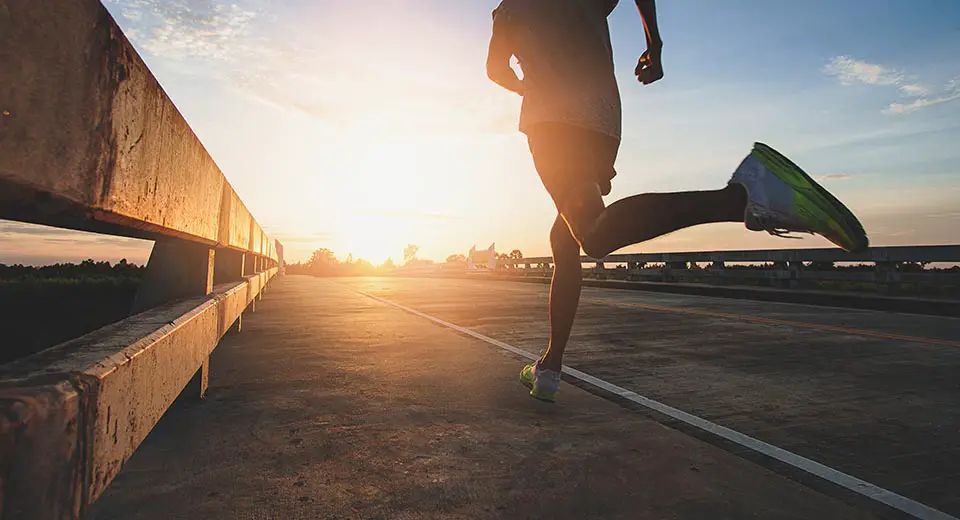
There are two big complains I hear when talking about prolonged fasts and muscle mass with people :
- I will lose muscles
- I won’t have enough energy to do my work, let alone exercise
Those are both wrong assumptions.
First, muscle loss. I would advise you to read my complete guide on muscle gain and fasting if you want to know more on the subject, but muscle loss occurs mainly in two situations :
- When you’re starving your body
- When you’re sedentary
Fasting is not the same as starvation. To convince you that you won’t lose muscle when fasting, let’s take a look at actual data.
In a 2010 study on people doing alternate day fasting, they discovered that body mass, for the 70 days of the experiment, did not change.

You might say, we’re talking about intermittent fasting here, not multiple days fasting.
Okay, so here’s a study taking a look at nitrogen excretion in urines (which occurs when the body breaks down proteins). During a three day fast, nitrogen levels didn’t change at all.
And protein breakdown in the body occurs all the time. When fasting, it even seem to decrease, from 75 grams to 15-20 grams during a fast.
The goal of the body is to preserve muscle mass, it won’t break down useful tissues when they’re still fat stores lying around. But if you stay sedentary during the whole fast, you will definetely be losing more muscle.
To demonstrate, Tim Ferris experimented with fasting, first for seven days under clinical supervision, where he couldn’t exercise and mostly had to stay in bed, then later for ten days with no restriction.
He didn’t lose a gram of muscle on the ten days fast, when he was allowed to keep his workout routine, but lost some on the seven days, no exercise one.
Regarding energy levels, you’ll have your ups and downs when fasting. I’m a web designer, I work in at home in an office, so I’m not pulling rocks on construction sites all days.
But when fasting for several days I always keep a strict workout routine. I usually exercise 5 times a week, but when I’m fasting, I exercise every day.
You may feel less energy on certain days (for me three and four are usually the worst) and you might not be as efficient, but I’m confident you can keep exercising in any case.
We event went on several hours hikes with my girlfriend while fasting and it went fine, as long as you drink enough water you’ll be able to get through it.
4. Don’t Smoke Or Vape

I did a full article on smoking cigarettes, tobacco and fasting. I also made another one about THC and fasting.
Each time, I concluded that it was kind of a grey area… but smoking or vaping should not break a fast.
If you intend to fast for several days, I would really recommend you don’t smoke or smoke very little. So, if you’re a smoker you might feel excluded from doing longer fasts.
But if you’re looking to get healthier, I would suggest you quit smoking, before trying any type of fasting. I’m not your mother though. If you want to smoke during a prolonged fast you can, but it’s not safe.
In that case, you should try and stick to rolled cigarette with organic tobacco if you can.
What you should know is that during the fast, your body will be so hungry for nutrients, since it’ll mostly be depleted of it, that the chemicals from the cigarette are going to be absorbed way faster.
Each cigarette will have a lot more impact on you than usual.
A friend of mine did a 7-day fast while smoking, she didn’t die, she didn’t experience discomfort, she just realized, as the days went by, that she had less of an urge to smoke.
But that’s her, everyone’s different and the risks are real, I warned her, now I’m warning you.
5. Understand the Side Effects

Bad Sleep Quality
While some people snooze like babies when fasting, others will experience poor sleep quality, having difficulty getting to sleep at all.
This can come from many aspects of the fasting experience :
- When you fast, there’s a natural increase of noradrenaline and cortisol, it mostly comes from the stress fasting puts on your body. That could keep you awake unexpectedly
- Eating is a huge part of the circadian rhythm, your internal body clock. Removing food from your daily habits will alter it and can mess it up at first. Meaning going to sleep will be harder, you might wake up during the night or suffer small insomnias
- Some foods, especially carbs, can help promote sleep by producing tryptophan, which converts into serotonin, a precursor to melatonin. Melatonin is the sleep-promoting hormone
This side effect shouldn’t impact your whole fast though, you might experience it a day or two, but your body will eventually catch up.
What I would advise you to do, if you feel like getting to sleep is really hard, is to only go to bed when you feel tired.
This’ll lead to less hours of sleep, but at least when you go to bed, you should be able to fall asleep quickly.
Dizziness, Nausea, Fatigue, Headaches, etc.
Often some of these side effects will come during the fast, generally on days 2, 3, or 4.
Here are a few reasons you might experience these :
- Fatigue and dizziness can come from the drop in blood sugar, also called hypoglycemia. Don’t worry, if you’re not diabetic, there’s no risk to your health
- It can also come from a lack of essential electrolytes, such as sodium, potassium, or magnesium
- Headaches can also come from low blood sugar, but it’s rarer, it often comes from dehydration or sugar withdrawal
- All those symptoms are also referred to as keto flu. Ketosis start happening after 24h when your body turns to ketone bodies and fatty acids as its main source of energy
The best way to fight these symptoms is to :
- Stay hydrated by drinking tons of water
- Stay active, because exercise is a great way to fight hypoglycemia
- Get electrolytes, either by supplementing or by adding salt (such as pink Himalayan salt) to your water
- If you really feel bad and tired, you could even try breaking your fast with a chicken or vegetable broth, this will really help
And again, it’s not a contest, if you really feel too bad and none of the above is helping, get some food in you !
Poor Training Experience
As I already stated, you should stay active and keep your exercise routine as much as possible during the fast.
But this can reveal to be difficult on certain days, you’ll feel tired, without energy.
That’s OK, on the first days, you will not necessarily have the same energy you would have when eating normally. The body’s under a lot of stress, especially if it’s your first prolonged fast.
If you feel tired, try doing a lighter workout, or exercising for 30 minutes instead of an hour, or running for 5 kilometers instead of 10.
You should exercise, yes, because it has many benefits, but don’t make it harder on you by sticking to your usual routine if you feel like it’s unusually hard.
Maybe on the 5th day, you’ll start feeling better, having more energy, and exercising will come naturally!
Hunger and Cravings
You might not know that, but if you don’t eat, you can actually feel hungry!
Joking aside, of course you’ll experience hunger and cravings, but these will greatly depend on your pre-existing eating habits.
It’ll depend on how dependent of sugar you are (and let’s face it, most of us are addicted to sugar on one level or the other) in my experience.
Hunger is not the same as cravings, and it’s not the same as wanting to eat. What you’ll experience, even during a 7 day fast, is not real hunger.
Real hunger comes after if you fasted for 2 weeks or a month when you’ve spent days without feeling hungry. If hunger comes back then, that’s your body pulling the alarm: eat.
But mostly, the hunger you’ll feel on the first days of fasting is your body telling you to eat because it’s lazy and doesn’t want to use fatty acids and ketones for energy.
Every time you feel hungry, think of what time of the day it is. What you would usually be doing? Eating lunch? Having your morning snack? Drinking orange juice?
95% of the time, it’s your body fighting the habit of getting something to eat or drink, because that’s what you usually do.
Sure, it might get hard between noon and 2pm, but be confident in one thing : it’ll pass.
And then you’ll experience no hunger or cravings at all, for up to four days. Somebody could be eating a huge burger or pizza in front of you, you wouldn’t be any more hungry.
Let me tell you: this feels great!
6. Stop The Fast If…

I really want to put emphasis on the fact that you shouldn’t think of fasting and your end goal as a contest or a mind game.
In one way, sure, you have to be strong and set your mind on your goal. That’s the whole point of this article.
But don’t make yourself sick. I’m not in your body, so I can’t effectively be here telling you this feeling is normal and this one is not.
In short, it’s up to you. You have to walk the thin line between the discomfort of the fast, your body wanting to eat and your mind telling it you won’t.
If you feel hunger really gets too strong, if you suffer stomachache, if drinking more water, getting electrolytes (from salt or a broth), staying active don’t cut it, if you still feel bad, just stop.
Even if this was passing and maybe if you waited for one more hour you would have been fine: don’t play with fire.
Because one, you might grow to hate fasting if you push it too hard, and two you can always try again in a few months.
You should be prepared for discomfort, for a spiritual journey, it should be hard, but it doesn’t have to be insufferable!
7. Breaking Your Fast
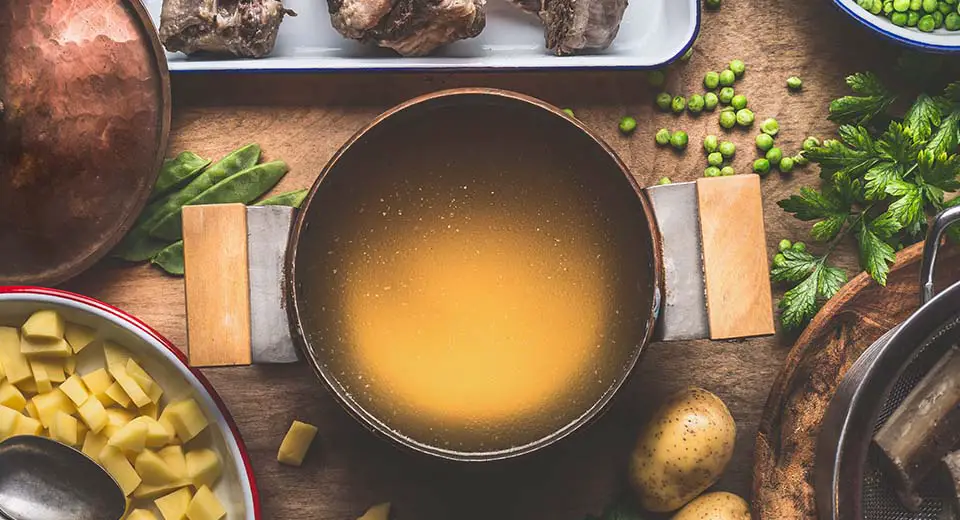
You did it! You’re on day 7, or 6, or 5, or whatever, now it’s time to break the fast.
You might think you’ll be ravenously hungry and wanting to eat pizzas, burgers, pasta, etc. But that’s rarely the case. Often there are one or two foods you really want to eat and it’s rarely carbs.
For my girlfriend, she’s always craving for apples after a long fast for some reason.
In any case, don’t indulge and plan what you’re going to eat and how you’re going to break your fast.
Here’s what I would advise you to do on the day you’ll break your fast:
- You could start with a spoon of Apple Cider Vinegar diluted in some water. Maybe 2-3 hours before breaking the fast, to stimulate the digestive tract and help improve digestion on your first meal
- Then when the time comes to break the fast, check out my 11 best foods to break a fast, any of them should be fine
Getting a chicken broth is a great way to break your fast, but even though it’ll taste like a million bucks, it’s still drinking, not eating, not chewing.
So don’t hesitate to get healthy veggies like spinach, kale, broccoli, and some fat-rich fish.
Again, no need to plan a feast, you won’t be really hungry anyway.
I would avoid carbs when breaking the fast, because it could increase hunger and make you eat more than you can actually take, leading to stomachache and constipation.
All that’s theoretical, from what I’ve tried and read, that’s the ideal way to break a fast. Some people are even more strict, imposing soup for several days.
I just want to say that you shouldn’t overthink it.
On my first two fasts, I didn’t especially look at what I ate when breaking the fast, getting a salad, some bread, and grilled meat. It went fine.
A friend of mine, the same one who smoked during the fast, broke it with sushi, bread, cheese, pâté, and some sweets. And it went fine too.
I definitely would not advise you to do this of course, but it’s not rocket science and there are no great health risks from breaking a fast the wrong way.
8. After The Fast
Give your body a few days to recover from the fast, don’t jump right back into old habits such as big dinners at restaurants, drinks, party, etc.
You’ve done a pretty amazing thing, give your body at least 2 days to get used to food and eating normally. Try getting light meals, avoid sugar, refined carbs, and alcohol if you can.
I’ve tried going out the next day, eating normally, drinking, etc. I survived, but I got drunk and felt like crap. And this kind of behavior is defeating the purpose of fasting in my opinion.
Maybe you’ll experience some discomfort after the fast, such as difficulty sleeping for a day or two, feeling depressed on the next day, stomachaches.
You’re switching your body’s whole machinery back again. It’s a lot less stress than the actual fast, but it can still have some ill effects.
But mostly, I think you’ll discover great gains from the fast!
Here are the main benefits friends of mine who did it and myself discovered when doing prolonged fasts:
- You won’t be as hungry, or feel as many cravings anymore, at least for a while. And it might even last longer if you don’t fall back too old habits (overeating, snacking, etc.)
- You’ll have lost some weight, as much as 1 kg (2 pounds) a day, even though you’ll regain up to 2 kg pretty quickly, that’ll mostly account for water loss
- It could greatly improve gut bacteria and your overall digestive system. If you often feel bloated or suffer from stomachaches, the fast could help reduce these
- You could experience reduced acne, eczema, psoriasis, etc.
- More willpower! You’ll feel it’s easier to resist cravings and if you do intermittent fasting, it’ll get easier too
And there are many others, but those are the one I’ve experienced or seen people experience first hand!
Conclusion
As I said in the beginning, a prolonged fast is not a walk in the park. You shouldn’t decide to do it on a whim and start the next day.
It should be a prepared, planned and organized experience.
Body and mind should be ready and if in any doubt, you should educate yourself on the subject and talk to your doctor about it.
You should have some supplements at hand during the fast (mainly electrolytes), stay busy and active, drink a lot, and be prepared to stop if it gets too hard.
There are many, many, benefits you’ll get from prolonged fasts and people might do it for weight loss or to help cure specific conditions.
But at it’s core, believe it or not, a prolonged fast is a spiritual endeavor.
When you’re living the experience of not eating for a few days and look back on it, you won’t think about weight loss or benefits, you’ll think about mental state, discipline, what was going on in your head during the fast.
And you might end the fast feeling bad, hating yourself for putting your body and mind through it, saying you’ll never do that again.
But trust me, the seed is planted, and you’ll come back to it eventually. 🙂
